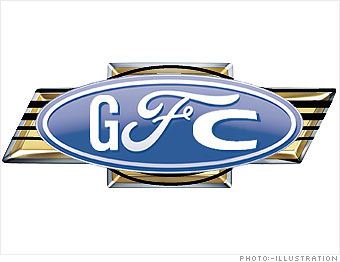
Very few experts expect Chrysler to survive as an independent company. As the weakest link of the Big Three, it could use help in some very specific areas of the business.
First, Chrysler doesn't have as much of an overseas presence as GM or Ford, so its health is more reliant on the U.S. market.
It could also use help making competitive small cars. Chrysler's strength is in trucks, vans and big cars. It's already formed alliances with other manufacturers: Chrysler has a deal with Nissan, which will build a small car for it. In return, Chrysler will build a truck for Nissan. Chrysler is also building a minivan for Volkswagen.
The benefits of GM or Ford merging with another company are less obvious. Both are international in scope, which have helped buffer the impact of market share losses at home, at least until recently.
Like Chrysler, GM and Ford could use assistance building a stronger line-up of small cars, but merging with a domestic automaker with the same problem wouldn't help that much. Besides, Ford and GM already have plans to sell some of their European small cars here.
One real benefit of a domestic merger would be to reduce each company's output to its current market share without having to go out of business. It would result in a "controlled contraction." This would also give the combined company greater power in negotiating new contracts with unions and suppliers for additional cost savings.
But closing excess factories and car dealerships takes a lot of cash up front. So any kind merger in the short term is less likely because of the current credit crisis.
NEXT: Deja vu all over again
